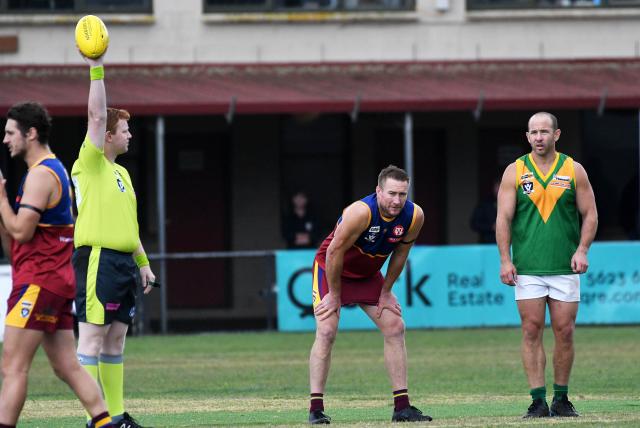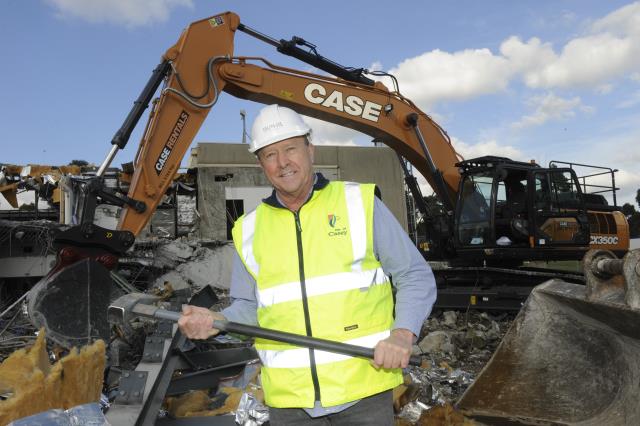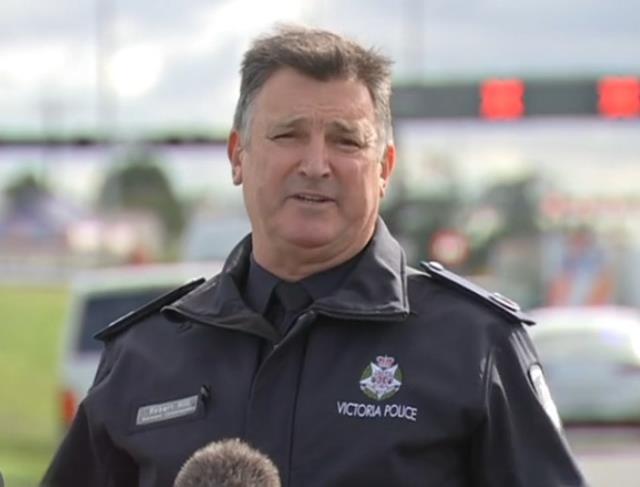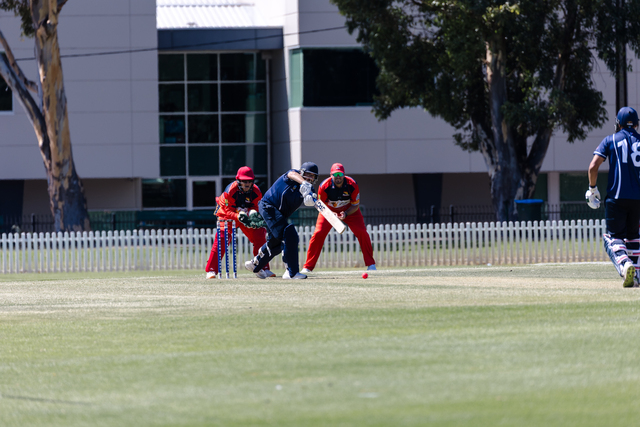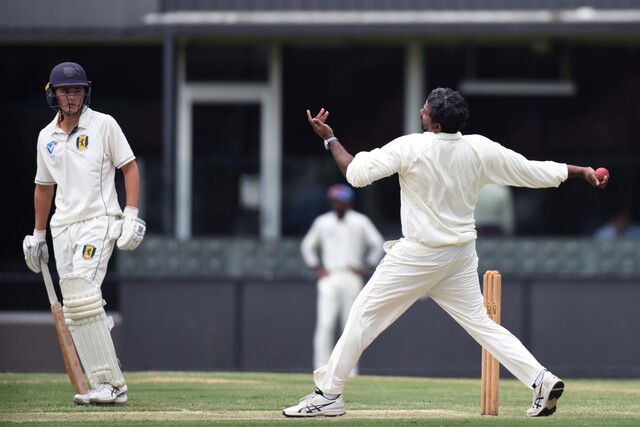DAVE: Hi boys, what a great weekend we’ve just witnessed with the respect shown to the Anzacs by our local communities one of the highlights of the sporting calendar. With Covid about over the last two years it’s been something that we’ve missed so well done to every single person who played a part in making the Anzac weekend happen…it was really special and I certainly had a tear in the eye more than once over the weekend.
But boys this week I want to talk about the sport of Australian rules football, surely one of the only sports in the world to use the word ‘rules’ in its title.
Obviously, the umpire dissent rule has been at the forefront of discussions over the last week or two, but the rules of our game have changed constantly over the last two decades in particular.
Tyler, let’s start with you mate, is there a sport in the world that changes its rules more often than the AFL?
TYLER: I don’t think so and I think that is why it is one of the hardest games in the world to officiate. And I think it’s also why it’s one of the only major sports in the world to not have a video game…it’s just too unstructured and there’s so much going on. And there’s often not a clear-cut decision, there’s so much grey area, and I was surprised at how many rule changes there have been when you sent the list through to us. It’s surprising, and almost embarrassing when you look at it on paper.
LACHLAN: I bring up soccer a lot in this column, and since 1849 there have been just seven rule changes, and two of those concern technology…that’s VAR and goal-line technology. Another concerned the height of the cross-bar, so only four rules relate to the actual playing of the game. What’s happening in the AFL is ridiculous, the rules change not from decade-to-decade or year-to-year, but week-to-week, and that’s why the umpires are finding it so difficult and the players don’t know what’s going on. Trying to explain our game to people from other countries would almost be impossible.
DAVE: We’ll talk about the driver behind rule changes shortly, but this Umpire Dissent thing has been very hard to watch. We’ve always been told that a good umpire does his job without being noticed…but that is now impossible to do these days. I feel for the umps. It’s almost become a competition between Operations Managers – Steve Hocking came in and changed the world and now Brad Scott has started off doing the same. In regards to other sports, Chess might be the game for me lads. The last rule change was in 2014, the 75-move rule. If a pawn hasn’t moved in 75 moves, or a piece hasn’t been captured…the game is declared a draw.
Boys, next question…Lachie, why do you think the AFL has been so pro-active with rule changes?
LACHLAN: I think the Umpire Dissent rule is simply to grow the game at grassroots level and get more umpires involved because they won’t cop abuse from the players. Concussion, and ongoing head injuries are other reasons, but I think the interpretation of the new rules is so open it is actually making the umpires job harder rather than easier. Tyler, your thoughts?
TYLER: A few reasons Dave, Lachie is spot on, but also safety of the players is a massive factor, but the big one for me is marketing, to be able to sell the game elsewhere and have AFL football as this high-scoring, athletic pursuit that people will watch on TV around the world. There are things that happen in the AFL, centred around money, that I don’t understand, but that’s a discussion for another day.
DAVE: Some of the rules are obviously for safety, the below the knees rule, head-high contact with a bump, even pushing a player in the back into a pack can be dangerous…and there’ll all to do with the OHS of the league. But I think most of the rules are to do with opening up the congestion of the game. I’ve thought for a long time that our game has been way overcoached at the highest level. The stand the mark rule looks ugly, but it’s been brought in to deny defensive coaches one avenue to congestion. And Umpire Dissent, that decision has been made by blokes looking at a sheet of paper telling them that umpire numbers are declining at community level. That’s definitely the driver behind that one.
Tyler, why has the Umpire Dissent rule caused so much controversy do you think?
TYLER: it’s controversial because it’s asking competitive people to be emotionless. Sometimes in the heat of sport you react, in the heat of the moment the adrenalin is pumping and there is so much emotion in this game and as Australians we’re emotional about our sport. But I also see the flipside…umpiring can be a terrible job and it’s pretty ugly to see the abuse sometimes at community level. And clubs are now providing their own umpires, in leagues that never used to, because participation rates are so low. To find a balance would be nice.
LACHLAN: Body language is such a natural thing and I think trying to take that away from players is why it has caused so much controversy. In the heat of the moment, I don’t think it’s dissent, I think it’s more seeking clarification on what’s just happened. What have I done wrong and how can I better myself I suppose. And Brad Scott of all people is in charge of this…it’s like a Vampire being in charge of a blood-bank, I think.
DAVE: Boys, I think you’ve nailed it, it’s all about the passion and stopping people from expressing it just doesn’t seem natural. You give away a free kick for lifting your arms up…the irony is you have to lift them anyway to stand the mark. Players will start lifting their arms up in a different way shortly and start expressing their passion and frustration that way.
TYLER: Next we won’t be able to celebrate goals…it will be patronising to the opposition.
DAVE: I think the AFL had to do something, there’s no doubt about that, but it won’t stop an emotional reaction from the crowd, at both professional and community level. And if I was thinking about umpiring…I would be more worried about the crowd than the players. Let’s simplify this. The AFL do things sometimes to create a talking point and there’s absolutely no doubt in my mind that this Umpire Dissent rule has been brought in to create discussion. All of a sudden, we’re talking about respecting umpires…the AFL has no doubt had a win on that front.
Lachie, what rules have been brought in over the last 20 years that have been hits and misses?
LACHLAN: The concussion rule, the safety of the players is the most important thing. John Platten, Shane Tuck, they’ve suffered after footy due to head knocks. And one of the misses has been the below the knees rule, I’m not a big fan of that, I think you should be allowed to hunt the footy in a contact sport, and bad things might happen sometimes. The stand rule, I understand why it’s been brought in…but it’s just an extra whistle and an extra time we have to listen to umpires explaining things to players. Like you said Dave, it’s very hard for an umpire to do a good job and fly under the radar these days.
TYLER: The 6,6,6 rule, yes it does stop flooding in the backline and has the potential to be a hit, but why are we still giving warnings. The protected area, absolutely horrendous, just make sure a player doesn’t impact the game instead of paying ridiculous 50-metre penalties. Contact below the knees was the most reactionary rule we’ve ever implemented because of one incident where Gary Rohan broke his leg. There have been some hits. The play-on out of the goal-square, without kicking to yourself, a massive hit. I don’t mind ‘Stand’ to be honest, and I love how players are allowed to start off their line and snap the ball at the end of a quarter, because the snap has become such a big part of the game.
DAVE: I agree Tyler, the quick play on from full back is a massive winner, no waiting, no time for the opposition to set up and full backs have an extra five metres of space to clear the ball from the back half. And boys, I used to love the third-man up, players like Anthony Koutoufides at Carlton, and even Michael Collins at a local level at Narre Warren, it was a speciality position that has now been taken from the game. I thought that play, punching the ball 20 metres from a stoppage…did open up play. I understand it’s for safety purposes, but I think taking that from the game has made it poorer.
Tyler, have we gone too far with rule changes…or is the game in a good place?
TYLER: Yeah, probably too far at this stage, I think.
LACHLAN: Way too far, it’s a professional sport guys, what are we doing here. We’d rather be at the Portsea Polo because the AFL is cracking down on everything and over-officiating and it’s becoming more and more frustrating. Why do you go to the footy, you go for passion, you go for energy, you go to watch the best athletes in the country run around? Why are we going, what’s the point anymore?
DAVE: I sense your passion there Lachie and I would shudder every time there was rule change if I was a local umpire, I think there’s way too much going on and we need to settle a bit. On one hand the AFL is trying to attract umpires back to the game, but on the other hand is making it extremely difficult to officiate. I think those two messages are going to cancel each other out unless we simplify things a bit. A player can be hunting the footy, hurt himself with a head clash on the legs of a player standing still, and we give the free kick to the player standing still, because one in every 10,000 collisions will result in a leg injury. It’s definitely gone too far and there are massive contradictions, I think.
LACHLAN: Things are never clear cut, the interpretations are too open, I think.
TYLER: I think with athletes and umpires we often forget that this is their job. How difficult would our jobs be if every single week there was something new, something changing, some new rule we had to implement. And for local umpires it’s not even their main job. They have to change; they have to stress about things that they shouldn’t have to.
And I don’t think we’ve bashed umpires here, far from it, but why is the umpiring always so good in grand finals compared to the home-and-away season. Some people will say it’s because we have the best umpires, but I don’t agree with that. Those same three umpires pay a free kick during the home-and-away season that they wouldn’t pay on grand final day. We love grand final umpiring because they let it go…if a free kick wouldn’t be paid on grand final day…don’t pay it during the home and away season.
DAVE: Boys, I’ve loved this chat. Last one…if you could remove or add a rule, what would it be and why?
LACHLAN: A rule I could bring in?
DAVE: Come on mate, you’ve had 24 hours to think about this.
LACHLAN: I think to simplify things, if the ball hits the post and still goes through for a goal, it’s a goal, it would save us a lot of time with video analysis and that type of thing.
DAVE: Your thoughts Tyler?
TYLER: I hate Lachie’s post one…how many goals would Plugger (Tony Lockett) have kicked if that rule was in place and Buddy would have kicked his 1000th seven years ago (boys laugh).
I’m big on bringing in a 23rd man, which they use in the VFL and NAB League, who plays a certain number of minutes each week and doesn’t have to wear a stupid vest. He plays limited minutes and if a player goes down, he’s allowed to play 100 per cent game time. James Jordan plays in the grand final; debutants don’t sit on the bench for four quarters…simple fix.
DAVE: My one would be that a player can kick a goal after the siren in exactly the same way he can kick one during the first 120 minutes of play…why do we change that aspect of play because the siren has blown. If you can run around and improve your angle for four quarters you should be able to do it after the siren. And not an official one, but one for coaches…if a player kicks a goal don’t take them off the ground. One of the highlights of the weekend was watching a player like Zac Bailey get hot and kick two in 15 seconds…don’t take that away from us!

